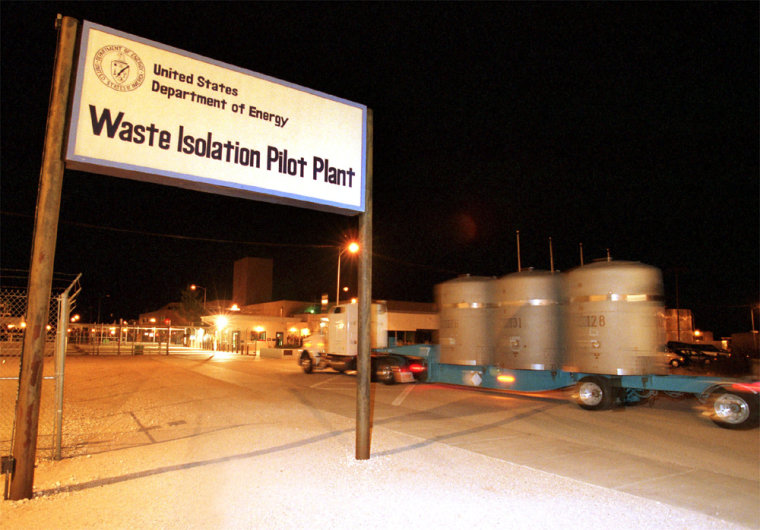The Energy Department has not done the necessary tests to justify relaxing the testing of radioactive waste shipments bound for a New Mexico storage site, a panel of scientists said Thursday.
The department has argued that safety checks required on shipments to the Waste Isolation Pilot Plant near Carlsbad, N.M., cost $3.1 billion and create delays. Changing the requirements would save time and money, the department said in petitioning for changes last week.
A report by a panel of scientists appointed by the National Research Council — a division of the National Academies of Science — said Energy has not done adequate studies to support its argument for easing regulations and those analyses should be done before it seeks to modify the state waste disposal permit.
However, a provision backed by Sen. Pete Domenici, R-N.M., and signed into law last month by President Bush orders the Energy Department to request that New Mexico relax its testing requirements and restricts the state’s ability to refuse the request.
“This is another example of the management failures coming from the highest levels of DOE,” said New Mexico Environment Secretary Ron Curry. “It is another example of DOE putting the cart before the horse and making unfounded assumptions to the detriment of New Mexicans.”
The Carlsbad facility buries transuranic waste — such as gloves, rags, tools, dried sludge and other debris contaminated during nuclear weapons making — in ancient salt beds 2,150 feet below ground.
Using records, not tests
Under the Energy Department’s proposed changes, instead of testing each shipment of waste, records kept on each drum of radioactive material would be used to determine whether the waste inside is eligible to be buried at the site.
There is no deadline for the state to act on the Energy Department application.
Sen. Jeff Bingaman, D-N.M., who objected to the Domenici provision, said the scientists’ report shows that Congress should only pre-empt state regulatory authority “after a transparent process has taken place — a process that yields thoughtful and careful analysis.”
The law cannot be undone, Bingaman said, but it should serve as a reminder “that there is a well-established process for modifying existing state regulations and that the federal government should respect it.”
First such waste site
Domenici defended the provision. “Experience has shown us that intrusive sampling techniques have shown to have little environmental, public safety or health benefits,” he said.
The National Research Council panel said that when the Carlsbad plant became the first operational waste facility of its kind four years ago, it made sense for regulators to be cautious and impose rigorous measures for screening waste.
Today, the site’s track record could help identify changes that could be warranted. However, a systematic analysis is needed before the Energy Department can make its case that changes are justified, the panel said.
